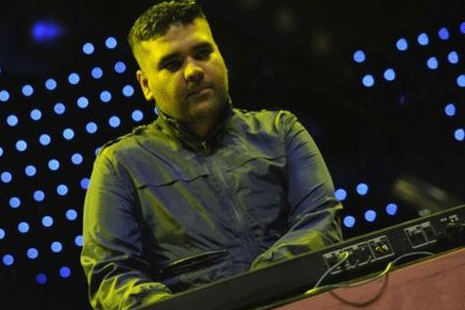Thoughts on the Muslim Youth Festival
I am writing this account of my experience at the Muslim Youth Festival, to which I was lucky enough to be invited, for two reasons. The first being that I was thoroughly impressed by the event, which was jointly organised by the Muslim Youth Focus Group and the Metropolitan Police. The Festival bought together hundreds of students from various schools across London and many Muslim professionals who had excelled in their professional lives. Secondly, I believe it a duty to amplify the many moderate and sensible voices, which arise from the British Muslim community but are, all to often, either drowned out by negative coverage or simply fall on closed minds.
The festival occurs in the wake of troubling revelations about Muslim individuals who have left their families in Britain to attempt and join ISIS. The concept of the event was devised as a platform for dialogue, which seeks to combat the growing threat of radicalisation within the UK.
The well-known individuals that this event was able to attract are a testament to the seriousness with which the British Muslim community is taking the questions surrounding its role in society. Guests included Lord Tariq Ahmad, who explained the mutual nature of British and Muslim values. He even alluded to his controversial letter, co written with Eric Pickles, which implored Muslims to speak out against terrorism. Lord Ahmed went on to embellish his message by proclaiming that asserting one’s Muslim’s identity is synonymous with asserting one’s British identity. His conservative colleague Baroness Sayeda Warsi spoke of her journey to and from the highest table in the Land. She spoke of several structural barriers she faced, as a coloured woman of the Muslim faith. The Baroness was also quick to highlight, that the next generation’s civil rights battle will be centred on religion. The room was filled with a plethora of political figures from several parties and individuals of disparate persuasions, all of whom received these messages of community and identity well.
The biggest cheers of the occasion were reserved for Humza Arshad (Badman) and Naughty Boy. I thought their presence at the event was particularly relevant as, unfortunately, Muslim Youths are faced with the tall task of rebuking a distorted media portrayal, which exacerbates the issues at hand. Both are icons of popular culture with a broad base of fans in the UK and abroad. Humza Arshad’s stand up piece was infused with a sense of comfort at, both, his “Britishness” and his Islam. I feel this resonated with the audience as it, not only came from a member of their generation, but also highlighted the tensions that accompany the journey of immigration and integration. By showcasing Muslim talent in the realms of comedy and pop music, it was refreshing to remind oneself of the depth and breadth of what Muslims have to offer Britain – a motif repeated throughout the night by many speakers, all of whom I can’t mention but are no less worthy of acclaim.
The event also marked a heightened cooperation between the Muslim community and the Police Forces. There was very much a sense of a coalescing at this event, in order to face a joint enemy; Islamaphobia. Commander Mak Chishty, the lead on engagement at the Metropolitan Police pointed to the efforts undertaken by the Police in order to gage Muslim opinions on issues surrounding their community. In fact, the whole event was the brainchild of the Muslim Youth Focus Group.
I had the pleasure of sitting aside several Labour Muslim Councillors from Lambeth and Harrow who spoke of their experiences in striving to simultaneously, engage Muslims communities with a political process unfamiliar to them whilst trying to promote the overwhelmingly positive contribution that Muslims have made to this country. A speaker even mentioned the 400,000 Muslims who perished whilst combatting Hitler’s tyranny in World War 2, which marks one of many milestones in the history of Muslims in Britain.
To my mind, the most significant part of the day were the academic led workshops which focused on several issues surrounding British Muslims and were delivered to the hundreds of school students that attended the event. Topics included the portrayal of British Muslims in the Media, Islamaphobia, British Muslim identity amongst others. I was fortunate enough to be a witness to some of these workshops and the positivity that exuded from the many Muslim students surrounding the issues at hand was extremely encouraging and a direct retort to the adjectives most commonly attributed to Muslims in the media. I was impressed at the awareness and sensitivity, which the school students demonstrated regarding the themes in play.
I left this Festival filled with optimism. As a British Muslim, privileged enough to have parents who had gone through our education system and who are ferociously focused on education as a foundation for any successful life, I was really struck by the power of the stories of individuals who hailed from different roots, but strove to achieve their goals no matter what was thrown in their way. It is clear that the next generation of British Muslims is overwhelmingly ready to embrace their country and their faith and they are no less British nor less Muslim for doing so. What was powerful about this event is that it transcended any divergence within the Muslim Community. Sects, political persuasions, nationalities and age have become irrelevant in what has become the campaign to assert a peaceful image of British Islam.

